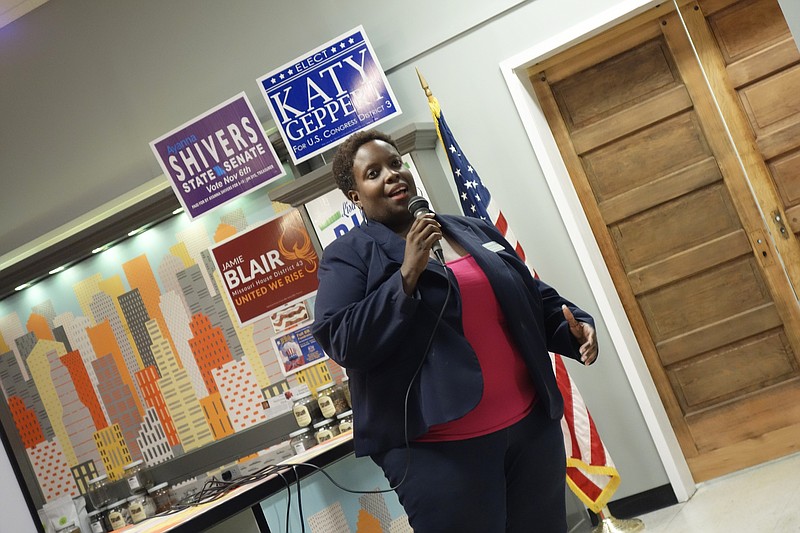As the Nov. 6 election closes in, candidate Ayanna Shivers is continuing to knock on doors and learn more about what makes people tick in state Senate District 10.
She said she's not running to be just another politician. Shivers is interested in making sure people are being heard. It's about people, not politics.
"Knocking on doors has been positive," she said last week. "I don't have dark money. It's a grass roots campaign."
She is running against incumbent state Sen. Jeanie Riddle, Republican, who is the state senator for the district that includes Callaway County. Riddle assumed that seat in 2015, and was previously elected to the Missouri House of Representatives in 2008.
Shivers has a different background. She earned a Master of Theology in Theological Studies degree in 2015 from Liberty University in Lynchburg, Virginia. She received a Doctor of Philosophy in Education in 2008 from The University of Southern Mississippi in Hattiesburg. She also has a Master of Education in School Counseling, earned in 2001 at The Citadel in Charleston, South Carolina, and a Bachelor of Art in Journalism, earned in 1994 at the University of Oklahoma in Norman.
She is director of College Placement and Counseling at the Missouri Military Academy in Mexico.
If elected, Shivers said her top three concerns are health care, public education and making sure right-to-work legislation, defeated by Missouri voters recently, is solidly down for the count.
"I'll definitely be ensuring no one brings right to work back," she said. "There's already rumors. We must make sure the voice of the people is heard."
Access to health care is still the main problem in Missouri, voters tell Shivers. Other states opted in to expand Medicaid, but not Missouri. In February 2014, the state Senate defeated an effort to expand the program in Missouri which could have extended coverage to about 80,000 residents. And like in other states that did not expand the federal program, rural hospitals are struggling, she said.
"Most rural hospitals are funded through government payers, Medicare and Medicaid," Brock Slabach, vice president of the National Rural Health Association. "In many facilities, that could amount for as much of 80 percent of total revenues."
Shivers said she doesn't know if a turn around is possible.
"Is there still time for us to expand Medicaid? What can we do as Missourians?" she asked. "We will be having a lot of conversations."
She also cited lack of funding for the state's public schools, which are increasingly receiving less money.
"It's hard getting people to understand it's not fully funded right now," she said of education. "It's $60 million in the hole right now. Sixty million dollars less than it was going into 2017, since (former Gov. Eric) Greitens' administration."
The election is Nov. 6. Absentee voting has already begun.

